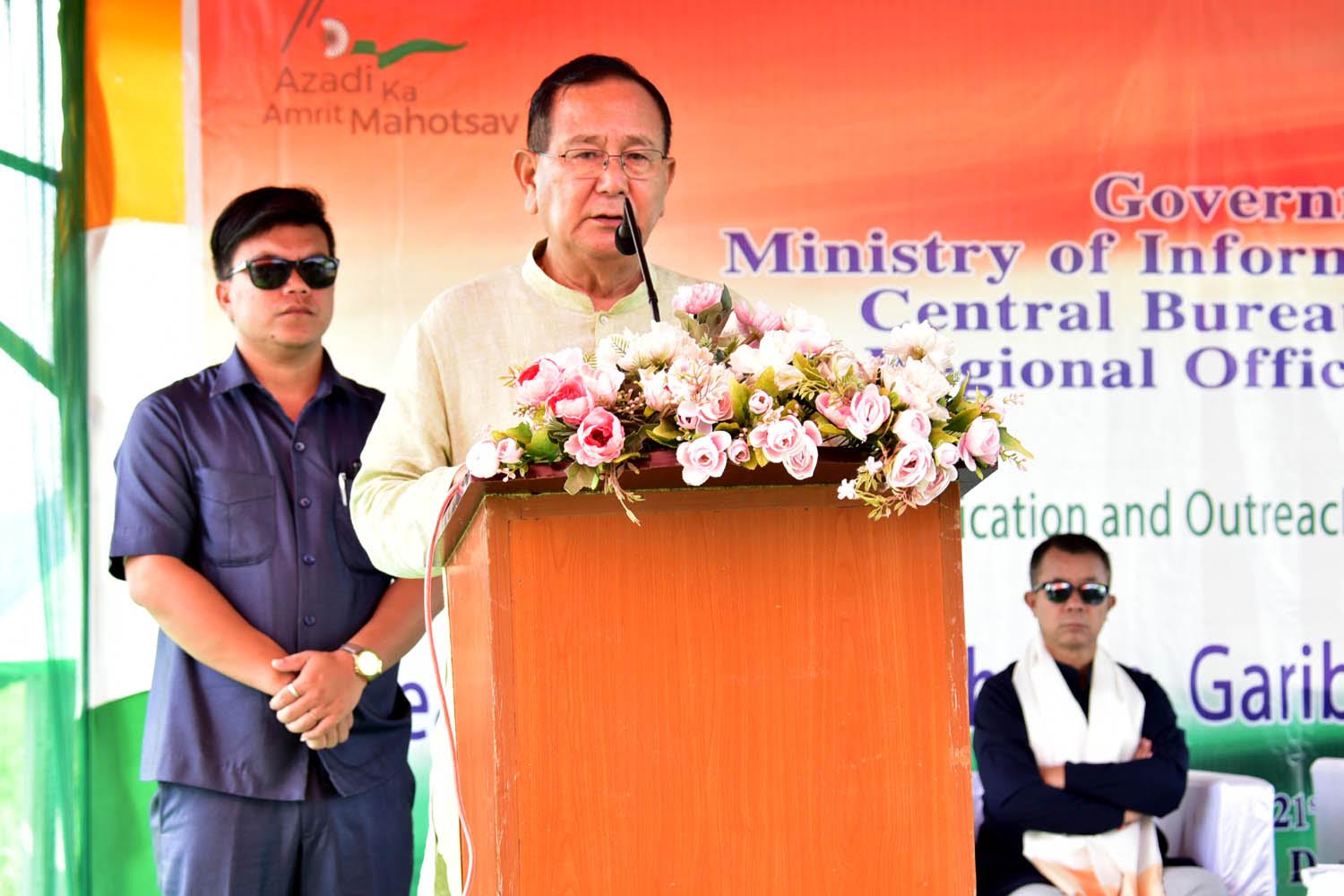Kolkata: Minister of State for External Affairs Rajkumar Ranjan Singh on Saturday stressed India’s millet diplomacy to solve the food crisis among the member nations and for the East and North East of the country to become leaders in diplomatic strategy for the region.
After inaugurating the two-day BIMSTEC meet, which is marking its 25th anniversary at the opening session of the Bay of Bengal Initiative for Multi-sectoral Technical and Economic Cooperation (BIMSTEC), Singh said, “This is the Year of the Millet, and our Prime Minister Narendra Modi has given much importance to it. This is a climate-resilient crop with high nutritional value. Let us hope that food deficiency by way of cultivation and popularisation of millet may be addressed. It grows in all geographic conditions and needs less water. So let us promote it and see how far it goes to solve the problem of food security.”
“Kolkata is strategically one of the most prominent cities of India, and for the promotion of East and the Act East policy, Kolkata should be the prime area and the regional head to lead the Act East policy,” he said while talking about the importance given to East in taking forward the BIMSTEC agenda.
He was happy to see the growing importance of BIMSTEC and said: “I am very happy to see BIMSTEC’s transformation from a grouping of countries into a full-fledged regional organisation focused on a broad region around the Bay of Bengal. Today, BIMSTEC has a distinct international legal personality.”
“BIMSTEC can address issues collectively, work, and collaborate in a manner that will help us attain Sustainable Development Goals and targets in the region. The Government of India is committed to BIMSTEC’S regional organisation. It is, for this reason, Mr. Narendra Modi gave financial resources to the BIMSTEC secretariat at the Sri Lanka summit in 2022. The BIMSTEC has now become an effective regional organization of the Bay of Bengal,” he added.
“Given the post Covid economic challenges that are being faced by all of us and also the uncertainties in the international system due to developments in Europe, it requires regional action more than ever before. The political leadership in the BIMSTEC region is firmly committed to taking BIMSTEC cooperation to the next level. The main challenges before officials, policymakers, and scholars like yourself are to help governments identify activities for policies that can be collectively undertaken and help BIMSTEC deliver real developments for its people,” he said.
BIMSTEC Secretary General Tenzin Lekphell said, “The conference is taking place soon after the 19th BIMSTEC Ministerial Meeting, which was held earlier this month, a year after the 5th BIMSTEC Summit held in Colombo, and later in this year we are going to conduct the 6th BIMSTEC Summit in Bangkok.”
The BIMSTEC areas of cooperation have also been reformed by rationalizing 14 areas of cooperation into seven sectors and sub-sectors of cooperation, and each member country has been given the mandate or the responsibility to lead a sector and thereby build ownership and ensure better local cooperation. The BIMSTEC Convention on Mutual Legal Assistance in Criminal Matters, the MoU on Mutual Cooperation between Diplomatic Academies, the MoU on the Establishment of a BIMSTEC Technology Transfer Facility in Colombo, and the Adoption of BIMSTEC Master Plan for Transport Connectivity show that BIMSTEC is on the right track.
Further, and most recently, the 19th Ministerial Meeting has also approved the BIMSTEC Maritime Transport Cooperation Agreement, which will significantly benefit the Member States as it will give free access to boats and enhance trade and transportation of goods and cargo between the member states.” He, however, admitted that the business journey has not been without its challenges.
“Nonetheless, we believe the crisis also creates opportunities, and BIMSTEC holds much promise as a platform for cooperation, our institutions, mechanisms, and legal frameworks are getting more concrete and established. Ministerial meetings and senior official meetings are increasingly getting more interactive, engaging, and regular. Our leaders and their political will and commitment to BIMSTEC are also increasingly bringing peace,” he signed off.


